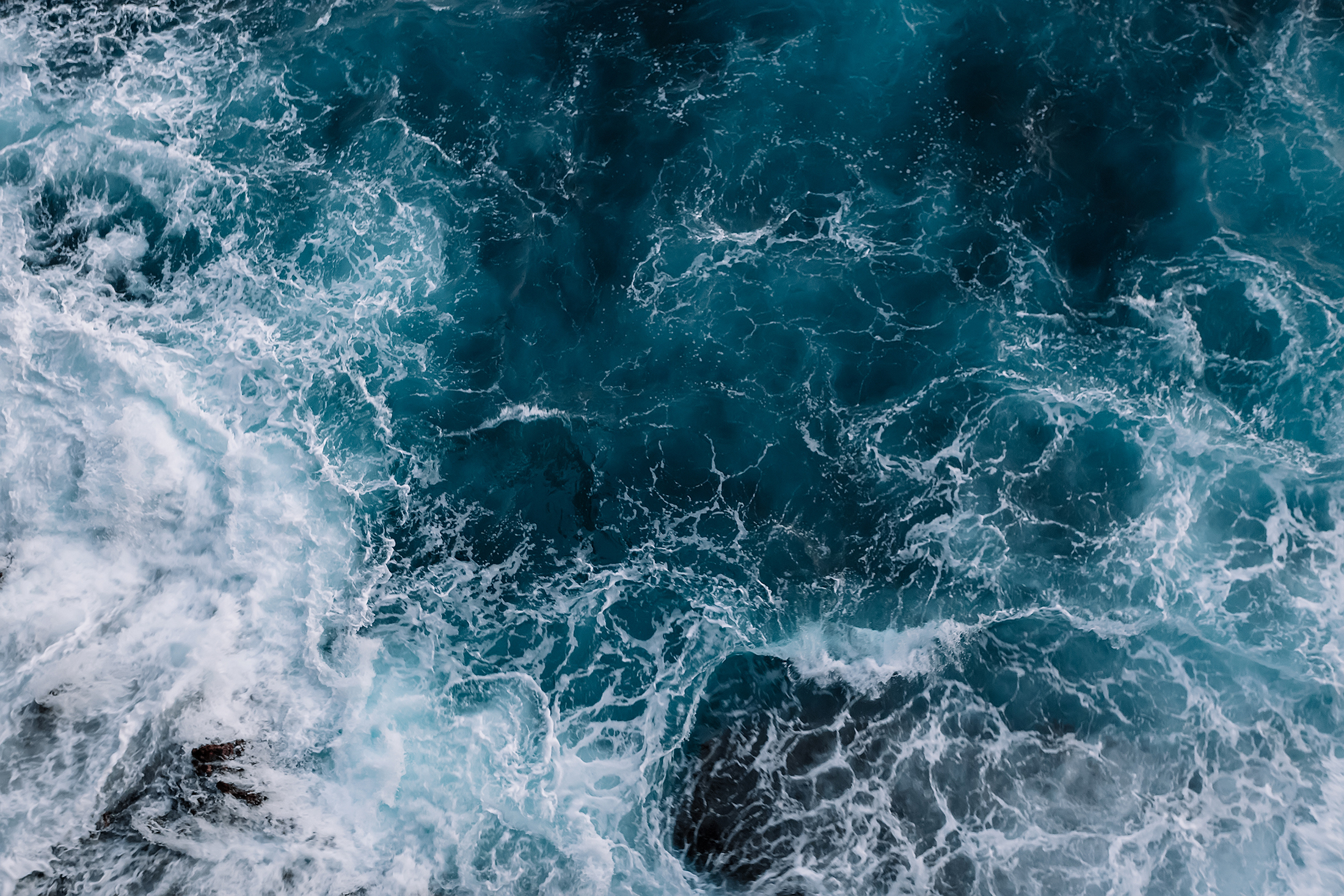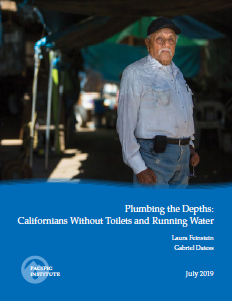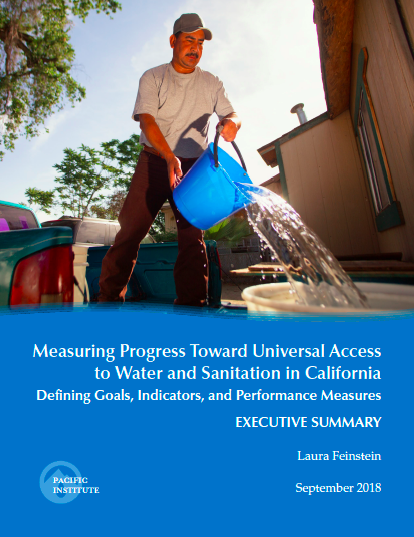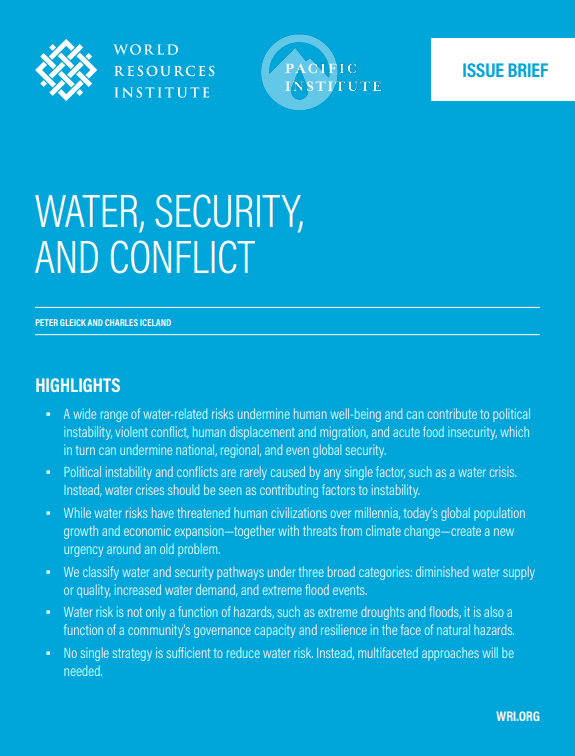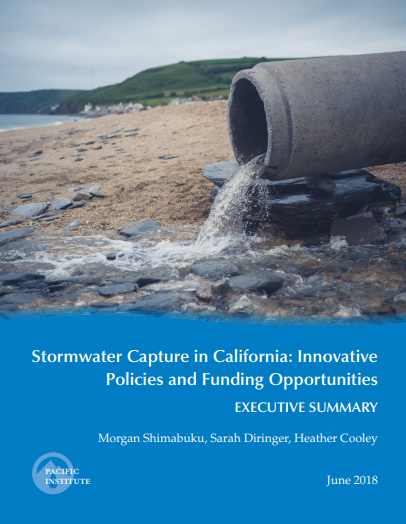1070 Resources
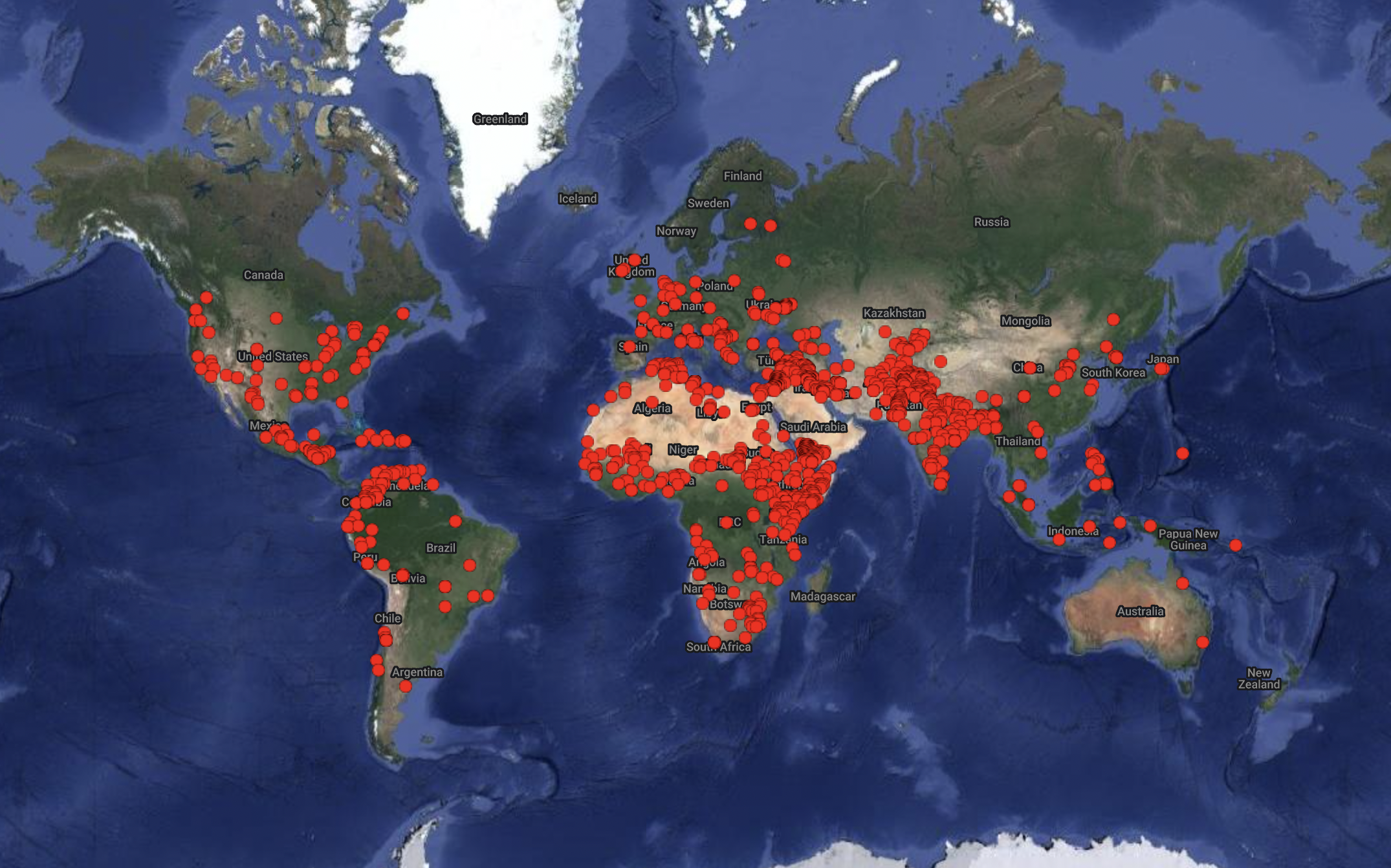
World Water Conflict Chronology
September 4, 2019 | tools
In an ongoing effort to understand the connections between water resources, water systems, and international security and conflict, the Pacific Institute initiated a project in the late 1980s to track and categorize events related to water and conflict, which has been continuously updated since.
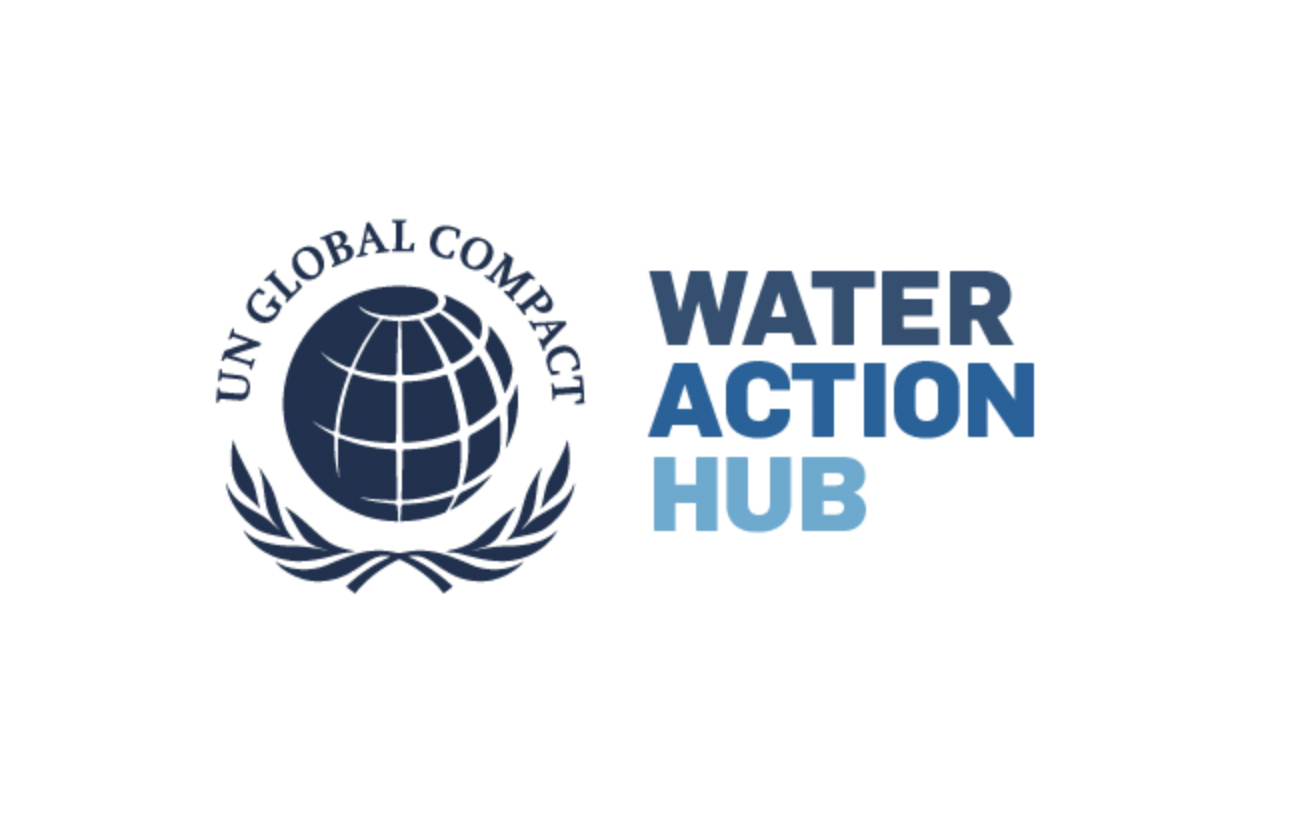
Water Action Hub
September 4, 2019 | tools
The Water Action Hub catalogs and facilitates water stewardship projects in river basins and regions around the world.

Current Information on the Salton Sea
September 3, 2019 | tools
This page is the go-to resource for up-to-date information on the Salton Sea, California’s largest lake. The page displays the current size and elevation of the sea, the status of habitat and dust-control projects, changes in bird populations, and more.
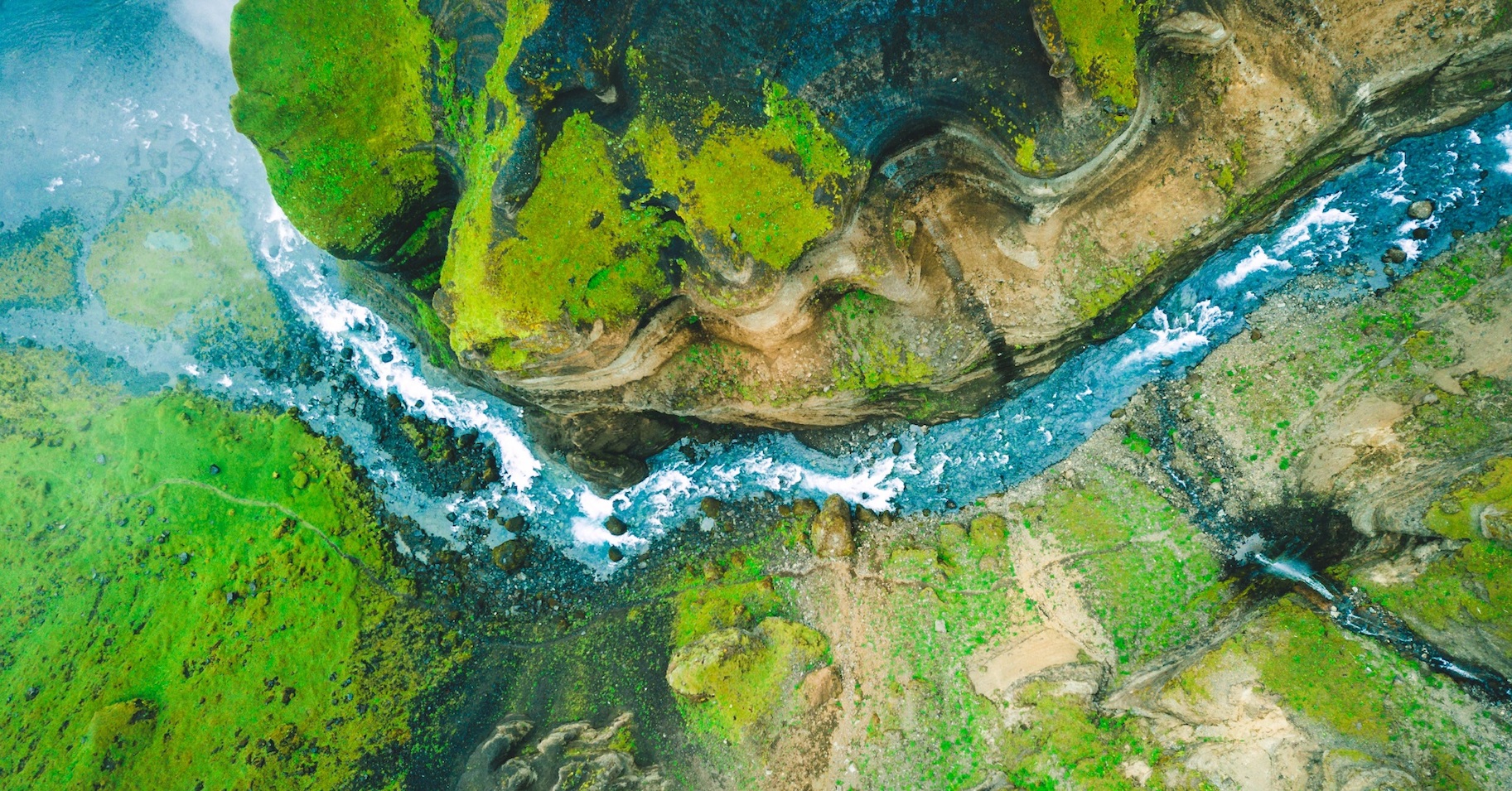
Find Your Partners for Water Sustainability with the Water Action Hub 3.0
September 2, 2019 | post
For those who don’t know, the Hub is an online collaboration and knowledge sharing platform for water. Or, as we like to say sometimes, it’s a “dating” site for water sustainability partners.
August 2019 Newsletter
August 29, 2019 | announcement
This months newsletter features New Publication: Setting Site Water Targets Informed by Catchment Context: A Guide for Companies, Sanjeev Chadha and Gavin Power Join Pacific Institute Board, Blog Post: Comparing Apples to Apples: Towards Better Communication Using a Common Language for Water, and More.
New Publication Launched at World Water Week Offers Guidance to Increase Water Security
August 27, 2019 | announcement
The publication, Setting Site Water Targets Informed by Catchment Context: A Guide for Companies, was developed in collaboration between the United Nations Global Compact CEO Water Mandate, CDP, the Pacific Institute, The Nature Conservancy, UNEP-DHI Centre for Water and Environment, the World Resources Institute and WWF.
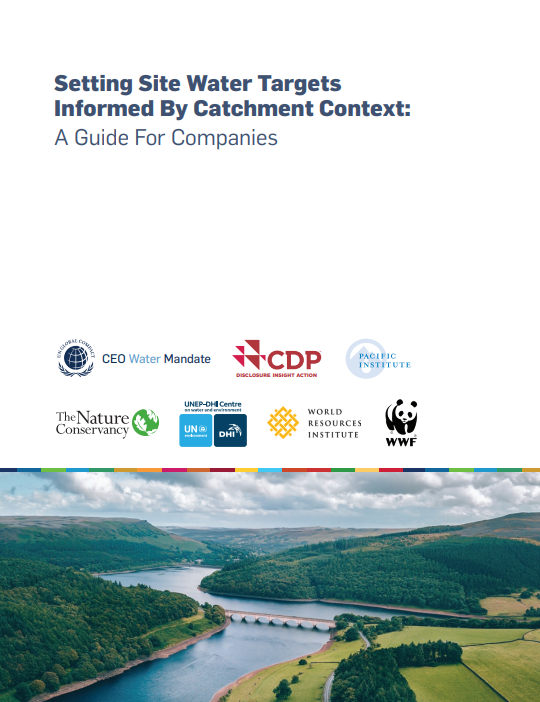
Setting Site Water Targets Informed by Catchment Context: A Guide for Companies
August 26, 2019 | publication
The world’s water resources are under growing pressure from rising water consumption, pollution, weak governance, and climate change, exposing businesses to increased water-related risks caused not only by their own water use and discharge, but also by the catchment context in which they operate.
Sanjeev Chadha and Gavin Power Join Pacific Institute Board of Directors
August 20, 2019 | announcement
The Pacific Institute is pleased to announce the addition of two new members to its board, Sanjeev Chadha and Gavin Power. “The board is delighted to welcome Gavin and Sanjeev,” says Board Chair Tony Stayner.

Comparing Apples to Apples: Towards Better Communication Using a Common Language for Water
August 19, 2019 | post
Coming up with a common language to describe water issues is a must if companies and other stakeholders are to engage in meaningful action. As a precursor to this, in 2014 we collaborated on the publication of the UN Global
The Pacific Institute at World Water Week in Stockholm
August 18, 2019 | announcement
Next week during World Water Week in Stockholm -- the yearly water event that brings together experts and stakeholders from around the globe to converse on global water issues -- the Pacific Institute will participate in a range of sessions.
Dr. Peter Gleick to Moderate Panel on Water at the 2019 Planetary Health Annual Meeting
August 17, 2019 | announcement
Dr. Peter Gleick will moderate the panel on water, "Rising to the Challenge: Scaling Freshwater Solutions," at the 2019 Planetary Health Annual Meeting at Stanford University on September 5th, 2019.
Upcoming Paris Session on Common Water Accounting Framework
August 16, 2019 | announcement
Principles for Responsible Investment is convening a session titled "Comparing Apples with Apples: Towards a Common Water Accounting Framework for Better Investment Decisions" with the UN Global Compact CEO Water Mandate and World Resources Institute on September 9th at the Palais des congrès in Paris.
Dr. Peter Gleick to Speak at AREDAY Summit in Colorado
August 15, 2019 | announcement
Dr. Peter Gleick will deliver the opening keynote address, "The World’s Water: Status, Challenges, Solutions" at the American Renewable Energy Day (AREDAY) summit at the Viceroy Hotel in Snomass, Colorado on August 17, 2019.
Pacific Institute to Co-Host Salton Sea Summit
August 13, 2019 | announcement
With the generous support of the Water Foundation and the Bureau of Reclamation, the Pacific Institute and the University of California, Riverside will host a Salton Sea Summit October 17th to 18th at the University of California, Riverside/Palm Desert campus.
Heather Cooley and Dr. Sarah Diringer of the Pacific Institute to Attend WaterSmart Innovations Conference & Expo in Las Vegas
August 10, 2019 | announcement
Pacific Institute Director of Research Heather Cooley and Senior Researcher Dr. Sarah Diringer will attend the WaterSmart Innovations Conference & Exposition in Las Vegas from October 2nd to 3rd. Dr. Diringer will present "Multiple Benefits of Sustainable Landscapes," along with Lisa Cuellar from the California Water Efficiency Partnership.
Dr. Anne Thebo of the Pacific Institute to Present at WateReuse Symposium in San Diego
August 7, 2019 | announcement
Dr. Anne Thebo of the Pacific Institute will present at the WateReuse Symposium in San Diego, California, on September 9th. Her presentation is titled “Evaluating Economic and Environmental Benefits of Water Reuse for Agriculture."
Heather Cooley of Pacific Institute to Speak at One Water Summit in Austin
August 5, 2019 | announcement
Pacific Institute Director of Research Heather Cooley, Senior Researcher Dr. Sarah Diringer, and Senior Researcher Dr. Laura Feinstein will attend the One Water Summit in Austin, Texas, September 18th 20 20th. The summit is organized by the U.S. Water Alliance.
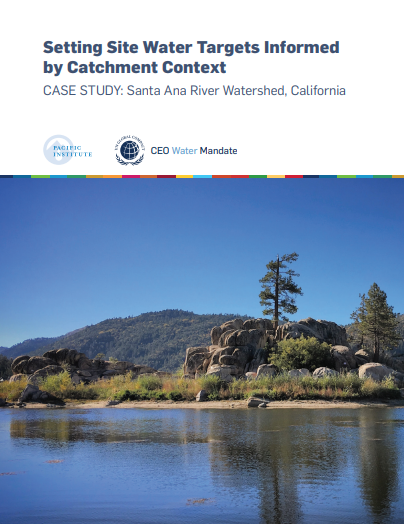
Setting Site Water Targets Informed by Catchment Context Case Study: Santa Ana River Watershed, California
August 1, 2019 | publication
By setting water targets that are informed by the local catchment context, companies can maximize impact and improve water security by addressing the key water challenges in the region and aligning their strategies with public sector goals, including the local water management goals and the United Nations Sustainable Development Goals.
July 2019 Newsletter
July 26, 2019 | announcement
Plumbing the Depths: Californians Without Toilets and Running Water, The CEO Water Mandate: Advancing Water Stewardship, Water Risk Management for the Private Sector, and More

4 Reasons Why Urban Landscapes are a Linchpin for Climate Resilience
July 26, 2019 | post
When it comes to water sustainability and climate resilience, urban outdoor landscapes represent a wealth of opportunity. Outdoor landscapes are a vital component of our cities...
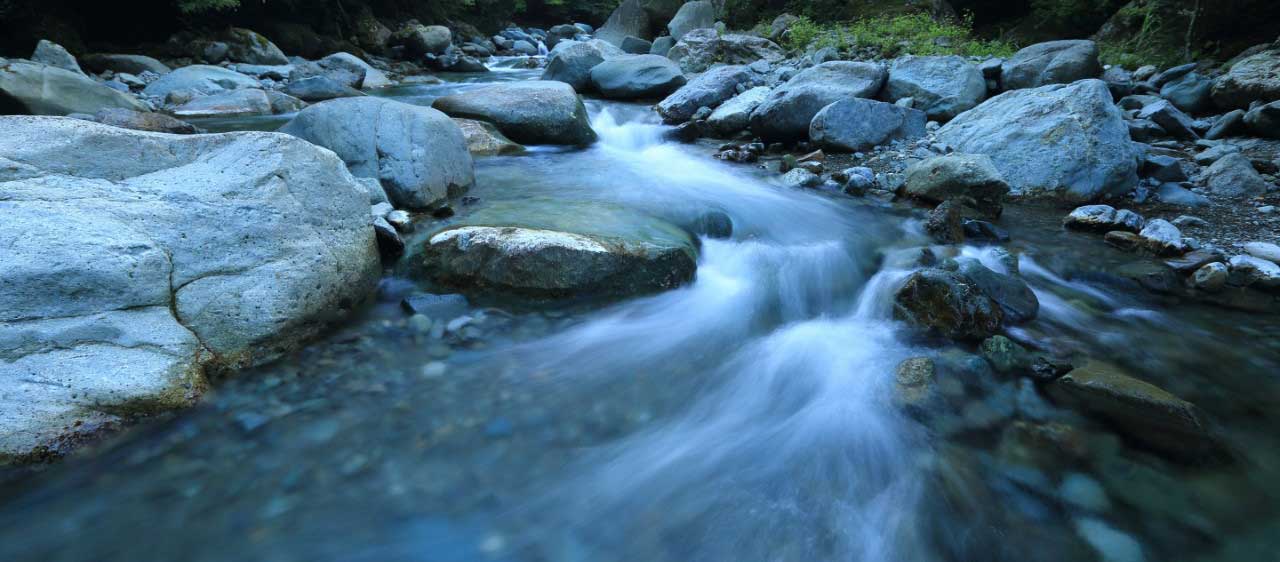
Water Risk Management for the Private Sector
July 17, 2019 | post
The complexity and local nature of the global water crisis requires collaboration, from community-based organizations to governments to businesses and others. Knowledge of water risks and opportunities can help businesses mitigate those risks and contribute to water security.
New Report Released on Access to Water and Sanitation in California
July 15, 2019 | announcement
A new report released today by the Pacific Institute finds that in 2015, 208,000 Californians lacked toilets, while 211,000 lacked hot and cold running water.
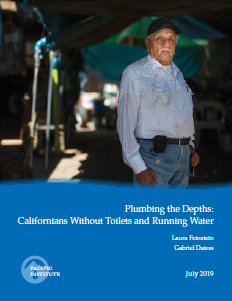
Plumbing the Depths: Californians Without Toilets and Running Water
July 15, 2019 | publication
California’s Human Right to Water law states that “every human being has the right to safe, clean, affordable, and accessible water adequate for human consumption, cooking, and sanitary purposes.”
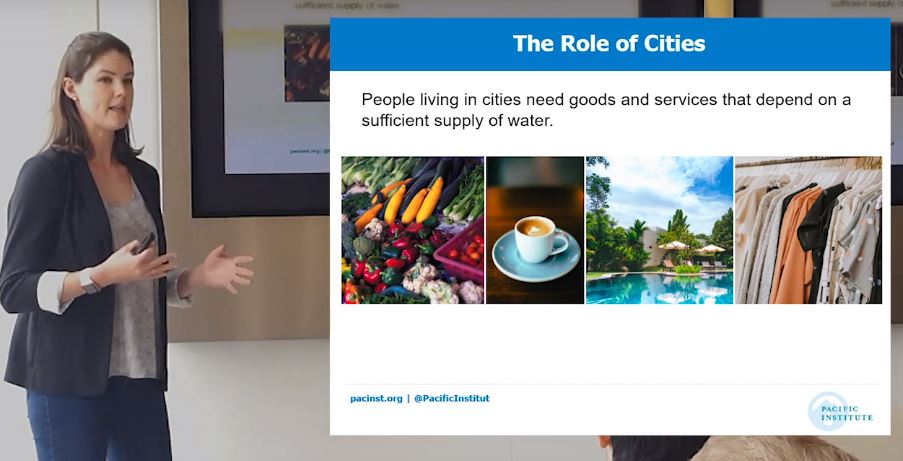
Water for Life: Building Water-Smart Cities for the Future
July 11, 2019 | video
Cora Kammeyer's presentation at the Cities of Tomorrow Conference in San Francisco.
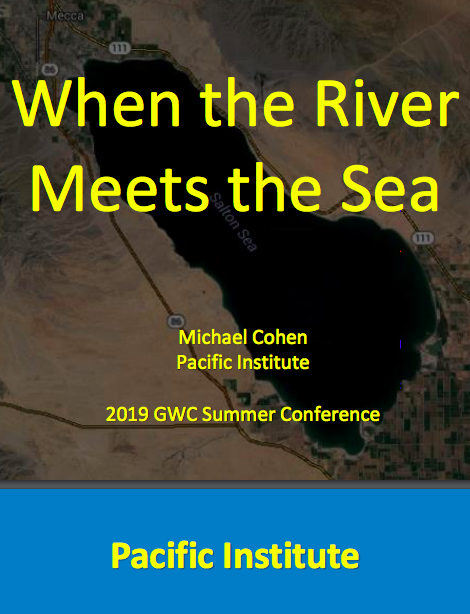
When the River Meets the Sea
July 10, 2019 | publication
This presentation on the Salton Sea presented by Michael Cohen at the 2019 GWC Summer Conference covers progress at the sea, the Colorado River and the sea, new bargains, and potential solutions.
Page 19 of 43


